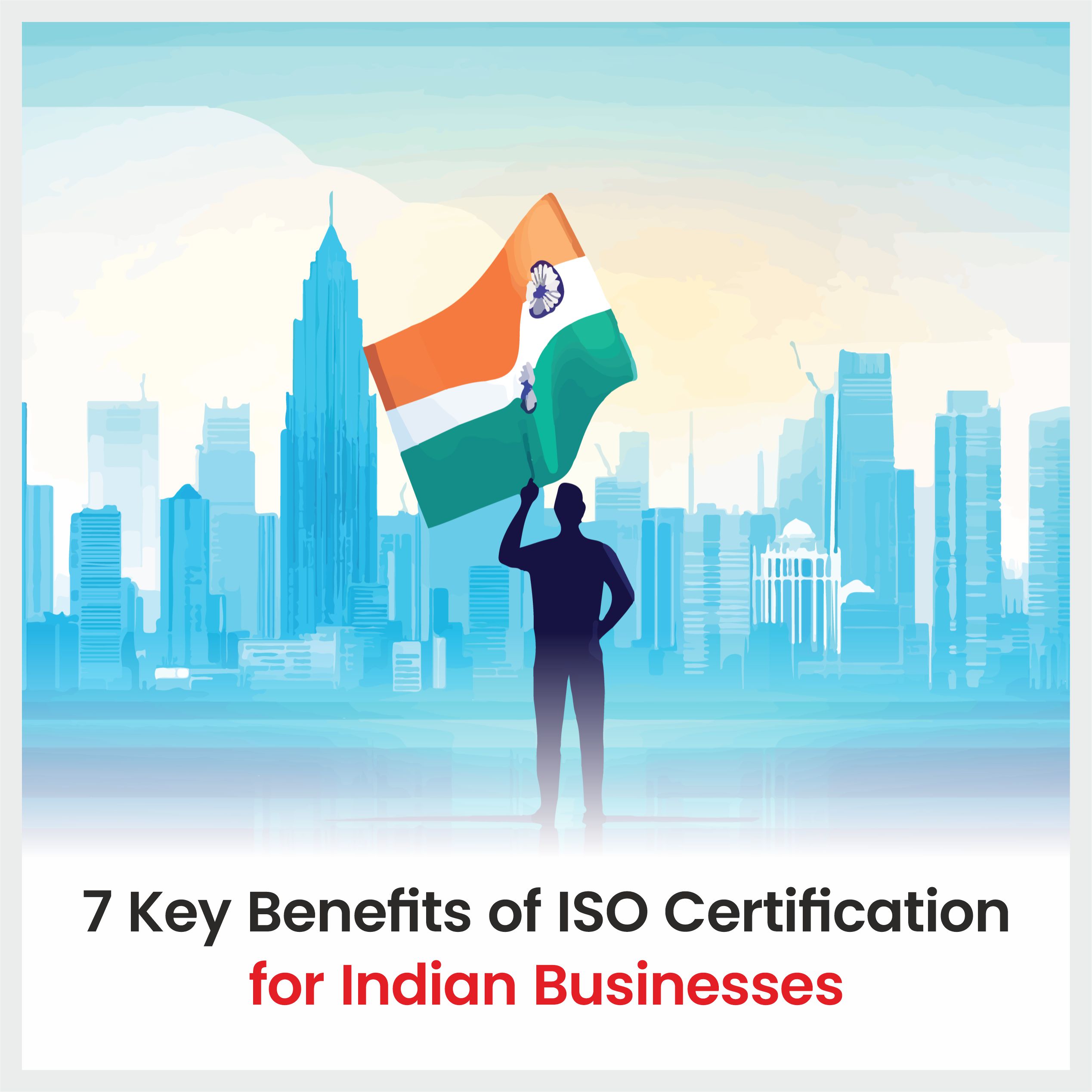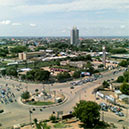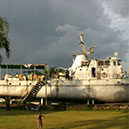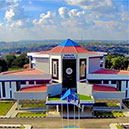Get ISO Certification Services in Nigeria
SIS Certifications in Nigeria – Driving Quality, Trust, and Growth
Quality Services and Delivery builds Trust which is considered to be the base for Growth of any organisation. SIS Certifications through its Expertise in ISO Certification Services helps the organisation to deliver the products and services as per customer requirements which empowers the organisation to gain more business and trust in the global market.
Overview of North, South, East and West Nigeria
North Nigeria is known for its rich history, cultural heritage, and diverse landscapes. It is home to ancient cities like Kano and Kaduna, famous for trade, traditional crafts, and Islamic scholarship. Agriculture plays a major role in the northern economy, with crops such as groundnuts, millet, and sorghum widely grown. The region also has large deposits of natural resources, making it important for Nigeria’s economic growth. Culturally, North Nigeria is vibrant, with festivals, traditional attire, and Hausa-Fulani architecture that attract visitors from around the world. Despite challenges such as desertification and security issues, the region continues to thrive through its resilience and entrepreneurial spirit. North Nigeria remains a significant part of the nation, contributing to education, commerce, and culture while preserving its traditional values and identity.
South Nigeria is often described as the economic hub of the country. The region is rich in oil and gas resources, making it a key contributor to Nigeria’s economy. States like Rivers, Bayelsa, and Akwa Ibom are at the heart of the Niger Delta, where petroleum exploration and production drive development. Beyond oil, South Nigeria is also known for its cultural diversity, with ethnic groups such as the Igbo, Efik, and Ijaw showcasing unique traditions, food, and festivals. The region’s lush greenery, rivers, and coastal areas support fishing and agriculture, while its cities are centers of trade and education. Despite environmental concerns in the Niger Delta, South Nigeria remains an area of great importance, balancing natural wealth with cultural richness. It continues to attract attention for both its economic potential and vibrant way of life.
East Nigeria is famous for its hardworking people, cultural heritage, and entrepreneurial spirit. The region is predominantly inhabited by the Igbo ethnic group, known for trade, innovation, and strong community values. Agriculture and commerce form the backbone of the eastern economy, with palm oil, cassava, and yams widely produced. Major cities like Enugu, Aba, and Onitsha serve as industrial and commercial hubs, drawing business from across Africa. East Nigeria also boasts beautiful landscapes, from rolling hills to rivers, making it a region with great tourism potential. Festivals, traditional dances, and local crafts reflect the vibrant culture of the East. Education and innovation are highly valued, with many universities and technical institutions in the area. East Nigeria continues to play a central role in Nigeria’s growth, driven by its people’s resilience, creativity, and determination.
West Nigeria is a region rich in history, culture, and economic influence. It is home to the Yoruba people, known for their strong traditions, colorful festivals, and artistic achievements. Lagos, Nigeria’s largest city and commercial capital, is located in the West and serves as a global hub for business, entertainment, and technology. Agriculture is also important in the region, with cocoa, cassava, and maize widely cultivated. West Nigeria is famous for its historic kingdoms such as Oyo and Ife, which have left a legacy of art, architecture, and cultural pride. Today, the region blends tradition with modern development, making it one of the most dynamic parts of Nigeria. With its bustling cities, vibrant culture, and strategic economic role, West Nigeria continues to shape the country’s growth and identity.
💡 Get Certified. Get Recognized. Grow Globally!
Boost your organization’s credibility, trust, and performance with internationally recognized ISO Certifications and Professional Trainings.
📜 ISO Certifications:
ISO 9001, ISO 14001, ISO 45001, ISO 22000, ISO 27001, ISO 27701, etc.
🎓 Training:
Lead Auditor Training, Lead Implementor Training, Internal Auditor Training, etc.
🔐 Infosec:
VAPT, GDPR, CMMI, SOC 1, SOC 2, HIPAA, HITRUST, PCI DSS, Cyber Security Audit, etc.
✨ Your Partner for a Sustainable Tomorrow ✨
Note:: The certification process begins with submitting a form and technical details, which are used to determine audit man-days. Our experts evaluate the information and share the cost and timelines with the client. We value your time and ensure quick responses, clear communication, and timely delivery of services.
Regions Covered
Regions Covered in North Nigeria
Regions Covered in South Nigeria
Industries Catered
Industries Catered in North Nigeria
Industries Catered in South Nigeria
Industries Catered in West Nigeria
Industries Catered in East Nigeria
ABUJA – The Administrative and Business Capital
Abuja, the Federal Capital Territory (FCT), plays a central role in Nigeria’s governance and economy. As the nation’s political seat, Abuja hosts government ministries, international organizations, embassies, NGOs, and corporate headquarters. The city is also experiencing rapid growth in real estate, construction, ICT, education, and healthcare.
For organizations based in Abuja, ISO certifications are essential for building trust, ensuring accountability, and demonstrating compliance with global standards.
ISO Certifications in Abuja
By achieving ISO certifications, organizations in Abuja can align with international best practices, strengthen stakeholder confidence, and reinforce their position as leaders in Nigeria’s administrative and economic landscape.
LAGOS – The Commercial and Financial Capital
Lagos is the heartbeat of Nigeria’s economy, serving as the nation’s commercial capital and gateway to international trade. With its thriving ports, financial institutions, ICT sector, and manufacturing clusters, Lagos hosts the headquarters of banks, multinational companies, and tech start-ups.
For organizations in Lagos, ISO certification is crucial to maintain competitiveness, gain global recognition, and ensure sustainable practices.
Common Standards applied in Nigeria
ISO 9001 Certification
Quality is the only secret recipe for the success of any business. With ISO 9001 Certification Nigeria, implement the international best practices for establishing a quality management system in your organization and ensure the quality of your product and processes.
ISO 14001 Certification
A healthy environment is the key to a sustainable future. With ISO 14001 Certification Nigeria, the organizations can implement Environmental management systems and ensure a positive interaction of business activities with the environment.
ISO 45001 Certification
Your company can achieve heights when your workforce is safe. With ISO 45001 Certification Nigeria, implement occupational health and safety management systems in your organization and ensure the safety and wellbeing of your staff against any work-related injuries or sickness
ISO 13485 Certification
ISO 13485 Certification Nigeria provides a framework for the implementation of a quality management system for medical devices. It ensures the consistency in the quality right from manufacturing to transportation, storage, and retail of the medical devices.
ISO 22000 Certification
The quality and safety of food that we consume is extremely important for our wellbeing. For any organization that is a part of the food supply chain, ISO 22000 Certification Nigeria holds huge importance. It can be used by producers, manufacturers, distributors, storage facilities, retailers or even restaurant-owners to ensure the customers that the food is safe to consume.
ISO 27001 Certification
In the era of digitalization, securing our data becomes extremely important. Any breach or loss in the data has huge implications on privacy and national security. With ISO 27001 Certification Nigeria, businesses can implement information security management systems and prevent the misuse of data.
ISO 21001 Certification
ISO 21001 is an international standard published by the International Organization for Standardization that specifically serves the management tools for organizations that offer educational products and services. ISO 21001 Certification Nigeria helps educational providers meet student’s requirements and needs. ISO 21001 standard intends to make sure that educational institutes are offering the highest quality instruction for the students and learners.
ISO 50001 Certification
The ISO 50001 certification establishes a system where you sustainably utilize the energy which tends to reduce business risks and improves the operations of the organization. ISO 50001 Certification in Nigeria allows the companies to pursue a proficient structure that widely encourages them to accomplish constant improvements in the energy management system and its vitality of execution and utilization.
ISO 22301 Certification
ISO 22301 is a management system standard recognized internationally for Business Continuity Management viable for organizations of all sizes and types. ISO 22301 Certified organizations demonstrate to legislators, regulators, customers, prospective customers and other interested parties that they are adhering to good practices in Business Continuity Management. ISO 22301 Certification Nigeria also enables businesses to show stakeholders that a recognized standard has been achieved.
CE Mark Certification
Conformitè Europëenne (CE) is a mark exhibiting conformity with health, safety and environmental protection for products manufactured, designed and sold within EEA (European Economic Area). However CE Mark is not just restricted to EEA, but it can also be adopted and accomplished by organizations outside the European Union. Though CE Mark is not mandatory, there is a list of 25 Directives and Regulations (list of products) by EEA which require CE Mark. The certification of CE Mark Nigeria will help to indicate that you possess reliability, coherence and efficiency. Also the CE Mark certification means that the product you sell is friendly and won’t endanger the lives of people.
India–Nigeria Relations Overview
Economic & Trade Ties
India is a key trading partner and investor in Nigeria, with over 200 Indian companies operating in sectors like power, pharmaceuticals, steel, and petrochemicals. Major commitments (~US$14 billion) include Indorama ($8B), Jindal Steel ($3B), and Skipperseil ($1.6B). Nigeria also invests in India, though on a smaller scale, mainly in textiles, construction, tourism, and pharmaceuticals.Energy Security
Nigeria is a major crude oil supplier to India, vital for India’s diversification of energy sources.Defense & Strategic Cooperation
Both countries collaborate on defense production, maritime security, and counterterrorism, especially in the Gulf of Guinea.South–South & Global Cooperation
As large democracies, both advocate for Global South interests at the UN and other forums.People-to-People & Cultural Links
Around 50,000 Indians live in Nigeria, strengthening ties through business, culture, and diaspora links.Progress since 1990 (Nigeria)
- Economic diversification beyond oil into services, agriculture, and ICT.
- Health gains: reduced infant/maternal mortality, increased life expectancy.
- Education reforms with universal basic education and UNESCO cooperation.
- ICT growth: telecom boom, fintech, and digital startups.
- Recent reforms improving fiscal transparency and stabilization.
AI & Future Opportunities
Nigeria’s youthful population, broadband expansion, and National AI Strategy position it to benefit from AI in agriculture, healthcare, fintech, and economic growth (potential +$15B GDP by 2030).Recent Developments (2024)
- New cooperation in energy, UPI/local-currency settlement, agriculture, MSMEs, and renewable power
- Stronger collaboration on maritime security and counterterrorism
- Tech and health partnerships, including digital health platforms and vaccines
Prime Minister’s Visit (Nov 2024)
Modi’s historic trip (first in 17 years) deepened ties; he received Nigeria’s Grand Commander of the Order of the Niger (GCON) honor, and three MoUs were signed on culture, customs, and survey cooperation.📑 Table of Contents – ISO Certification in Nigeria
Benefits of ISO Certification Services
- ISO Certification can take your company from one level to another by enhancing the efficiency of your processes.
- It helps to reduce work-related risks and environmental threats in your organization.
- It gives high emphasis on balancing the usage of energy encouraging cost saving in the organization.
- It helps to meet and fulfil all the requirements of the customers.
- It maintains environmental, health, and safety measures in the organizations.
- It helps to provide a foundation for the effective and efficient delivery of products and services.
Apply for ISO Certification in Nigeria
SIS Certifications is one of the leading Certification bodies which offers internationally recognized ISO certification to organizations with other related services. Apply for ISO Certification in Nigeria as it helps you to manifest a level of competency in terms of efficiency and effectiveness in your organization.
ISO Training in Nigeria
Register yourself on training courses provided by SIS Certifications and gain the confidence to assess ISO standards. This will allow you to plan an audit and conduct it in a systemized way. For anyone who is interested in conducting first-party, second-party, or third-party audits, SIS Certifications is the correct option to go for. For planning, implementing, supervising, or auditing choose SIS certification for ISO Training in Nigeria.
Cost-effective ISO Certification in Nigeria
SIS Certifications has a team of well-qualified auditors, who will help you to reduce your required certification cost by negotiating. Therefore, it will be more cost-effective for your company or organization in and around your domestic territory, if you get your required standards through SIS Certifications.
Why choose SIS Certification for Applying ISO Certification: The only thing you really need to know
SIS Certifications is basically one of the leading certifying organizations which provide international management system certification services to all types of organizations regardless of their type, size, and processes, by using all the right processes. We are accredited by International Accreditation Forum (IAF), International Organization for Accreditation Services (IOAS), and International Accreditation Service (IAS).
It will be very beneficial for your company if you choose SIS Certifications. Some of the primary benefits are noted below:
- SIS Certifications can certify all types of organizations regardless of their type, size, and processes.
- If you choose SIS Cert then you are guaranteed to get direct certificates of the required standards as there is no involvement of a middleman in the procedures.
- SIS Certifications is the only certifying body that focuses on each and every client with utmost importance.
- SIS Certifications always use all the right resources to certify any organization.
- SIS Certifications does not follow biases in their certification process, all the clients are treated equally whether it’s a well-established business or not.
To know more about SIS Certifications – Click Here
Missing Something?
We’re here to help you find exactly what you need—just let us know, and we’ll guide you in the right direction.
LATEST NEWS & BLOGS

India’s Digital Payments Story Runs on One Invisible Layer: PCI-DSS
India at the Center of the Digital Payments Boom With a boom in the digital economy, India finds itself at

How to Choose the Best ISO 27001 Certification Body (Step-by-Step Guide)
Data breaches can happen at any time, and regulators or clients can also act without warning. ISO/IEC 27001 certification is

7 Benefits of ISO Certification in India for Business Growth
Businesses claim to deliver QUALITY in today’s cut-throat market; however, there is no source to verify the claims. What if




